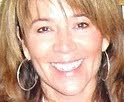 In my latest book, Living Happily Ever After with Your Daughter Today, I take a lesson from the movie Ice Princess.
In my latest book, Living Happily Ever After with Your Daughter Today, I take a lesson from the movie Ice Princess.Joan Carlyle, based on her own experiences, believes she knows what’s best for her daughter, Casey. As an academician Joan has always pushed Casey in a similar direction. In the beginning her daughter plays along. Near the end of the movie Casey tells a Harvard interviewer she must chase another dream. She withdraws her name from consideration and has to break the bad news to her mother. Her mother is horrified. They had worked so hard on this dream. Harvard is it. Harvard is Casey’s ticket to her future. Casey, though, has a different dream. Casey is an ice skater.
“Casey, you can’t do this,” her mom says. “You are giving up on your dream.”
“No mom,” Casey says, “I’m giving up on yours.”
Part of our role of parenting is to advise our children. Giving advice, though, is a risky game to play. Just like Joan Carlyle we believe we are doing the right thing. We have really good reasons and we are coming from the best of places. But giving advice is tricky. And here’s why. It is virtually impossible to remove yourself from the advice you give. Anytime you are helping your child make a decision you are bringing in your own experiences.
In a Judging Amy TV episode, Judge Amy is upset with Lauren, her pre-teen daughter. Lauren wants to try out for the cheerleading team. Judge Amy is dead set against it. She says no, and gives no good reason for her decision. She seems harsh and uncaring. As I watched, I couldn’t figure out what was wrong with her. Later we find out Judge Amy had not made her squad and felt rejected by her cheerleading peers. To Judge Amy, cheerleaders were snobby and cruel. She wants to protect Lauren from a similar scenario.
Lauren’s experience is different. To her, the cheerleaders are friendly and accepting.
It’s hard not to let our own hurts and pains color our recommendations and decisions. The bottom line is there are many, many people with many, many opinions, ideas, suggestions, laws and recommendations about how we should behave or act. No one else on the face of this planet—not even parents with best intentions—can take into consideration all the factors of a person striving to make decisions and to reach personal goals.
When we attempt to direct our children towards what we perceive is the “safe” bet, like Joan Carlyle, our children tend to get lost in our expectations and wishes for them. As I tell my workshop participants, “You are the one that has to wake up to your life everyday.”
In most cases the best advice is no advice. Let’s at least start there. It’s taken me years to learn most people really don’t want advice, and I’m still learning. Sister Jennifer, no comment! But I love to give it. Don’t we all? Most people, including your pre-teen or teenage child need to be listened to. Many times the person doing the talking can figure out what she needs to do without your brilliant input. And if she seems to be struggling, then help her look at the pros and cons of each choice without trying to push her in one direction or the other. Give her the benefit of the doubt and she will surprise you!
Allyn Evans
email: info at allynevans.com
http://www.allynevans.com/
